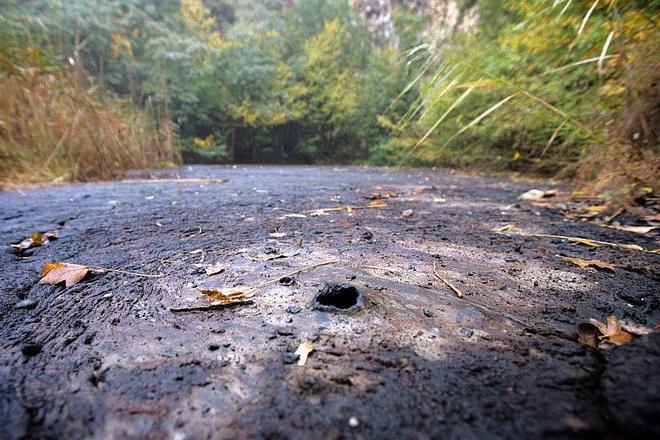Government falls over EU bailout vote. The Radičová government falls after Freedom and Solidarity (SaS), one of the four parties of the governing coalition, refuses to support a change to the European Financial Stability Facility that is also linked with a confidence vote in the government. Subsequently, the Slovak Democratic and Christian Union (SDKÚ), the Christian Democratic Movement (KDH) and Most-Híd – the three other coalition parties – get an agreement from the opposition Smer party to approve the EU bailout legislation in exchange for early parliamentary elections on March 10, 2012.
Austrian firm plans talc mine. After discovery of one of the world’s largest talc deposits near Gemerská Poloma in Košice Region, Austrian-based VSK Mining company plans to invest about €20 million in a mine and processing plant that will employ around 100 people in 2014. The company hopes to capture a 20-percent share of the world’s talc market.
Volkswagen makes additional investments. Volkswagen opens its new paint shop for car bodies for its Up! series after an investment of €100 million and also starts construction of a new press shop costing €90 million that will bring 100 additional jobs and is slated to start making around 19,000 parts per day by late 2013.
Railway revitalisation plans continue. Slovakia’s three state-owned railway companies continue their revitalisation efforts after the fall of the Radičová government. The three companies have laid off over 3,000 employees from a total of 31,000 as part of a plan to stabilise their finances. The plans also envisage a reduction in passenger routes and finding a strategic partner for freight operator Cargo.
Kia Motors launches Venga. Kia Motors Slovakia starts serial production of a small commercial vehicle, the Kia Venga, at its assembly plant in Teplička nad Váhom after making an investment of €40 million to modify its production facilities.
New steel mill starts operation. Slovakia Steel Mills, a new facility near the town of Strážske, completes its trial operation. The construction cost €240 million and the company plans to produce up to 800,000 tons of steel a year.
Environmental burdens law passes. Slovakia’s parliament approves a law on toxic environmental burdens that is hailed by Environment Minister József Nagy as the law of the decade. The law uses the principle that the “polluter pays” in determining the person responsible for an environmental burden, but if the originator cannot be determined or no longer exists the law establishes a mechanism to decide who must be the responsible person for the hazardous site. The cost for remediation of Slovakia’s existing environmental burdens is estimated at €487 million between 2010 and 2027, at least.
Pribina highway opens. A new 46-kilometre dual carriageway, dubbed Pribina after an historic Slavic leader, opens on October 28 after a one-month delay. It connects Nitra with Tekovské Nemce. It was built via a public-private partnership (PPP) project by the Granvia construction consortium over 26 months; construction costs were €800 million. Granvia must still complete a bypass road around Banská Bystrica before July 2012 within the overall 51.6-kilometre project.
PSA Peugeot Citroën temporarily suspends production. Trnava-based PSA Peugeot Citroën Slovakia, which has operated in Slovakia for five years, announces a temporary suspension of assembly operations for nine working days between October 28 and November 4 and between November 14 and 18 because of the difficult economic situation in Europe.
Parliament drops reform of payroll levies. After the fall of the Radičová government, Slovakia’s parliament stops further legislative debate on the government’s proposals to change the country’s system of mandatory payroll levies for social insurance programmes.



 Parliament passed a law on environmental burdens. (source: SME)
Parliament passed a law on environmental burdens. (source: SME)